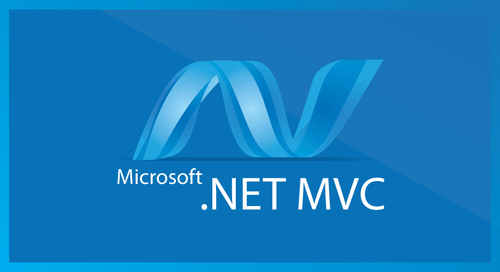In today's digital landscape, web application security is paramount. One essential aspect of ensuring security is email verification, which plays a pivotal role in user registration and authentication. In this extensive guide, we'll explore the world of email verification in ASP.NET MVC, providing you with the knowledge and tools to implement robust email confirmation systems and safeguard your application.
The Significance of Email Verification
Before we delve into the technical details, let's first understand why email verification is essential:
Security Enhancement: Email verification adds an extra layer of security by confirming the authenticity of user-provided email addresses.
Data Integrity: Valid email addresses ensure that your application collects accurate user data, reducing the chances of duplicate or erroneous information.
User Trust: Email verification enhances user trust. When users receive a verification email, they gain confidence that your application values their security.
Email Verification Techniques in ASP.NET MVC
1. Data Annotations:
ASP.NET MVC provides data annotations like [EmailAddress] that you can apply to model properties to enforce email format validation. Here's an example:
[EmailAddress]
public string Email { get; set; }
2. ASP.NET Identity:
ASP.NET Identity simplifies user authentication and email verification. It offers built-in features for email confirmation, password recovery, and two-factor authentication.
3. Custom Email Confirmation Logic:
For more control over the email confirmation process, you can implement custom logic. This involves sending verification emails with unique tokens, confirming user email addresses upon token validation, and handling expiration scenarios.
4. Third-party Libraries:
Consider utilizing third-party libraries to streamline email verification. These libraries often provide pre-built email templates and easy integration.
Best Practices for Robust Email Verification
Use ASP.NET Identity: Whenever possible, leverage ASP.NET Identity's built-in features for email confirmation and authentication.
Secure Token Generation: Ensure that tokens used in email verification are securely generated, unique, and time-sensitive to prevent abuse.
Token Expiration: Implement token expiration to enhance security. Users should verify their email within a defined timeframe.
Logging and Auditing: Log email verification events for auditing purposes, allowing you to track verification activity.
User-friendly Messages: Provide clear and user-friendly error messages during the verification process to guide users effectively.
Commonly Asked Questions
1. Is email verification necessary for every web application?
Email verification is essential for applications that require user registration and authentication, especially those dealing with sensitive information.
2. Can I use third-party email verification services with ASP.NET MVC?
Yes, integrating third-party services is possible and can enhance email verification functionality.
3. How secure are ASP.NET Identity's built-in email confirmation features?
ASP.NET Identity provides robust security features, but it's essential to follow best practices for token generation and expiration.
4. Can I customize the email verification process in ASP.NET MVC?
Yes, you can implement custom logic for email verification to meet your application's specific requirements.
5. What's the role of email verification in two-factor authentication (2FA)?
Email verification is often used as part of the 2FA process to confirm the user's identity during login.
Conclusion
Email verification in ASP.NET MVC is a critical component of web application security and user registration. In this comprehensive guide, we've explored various techniques, including data annotations, ASP.NET Identity, and custom logic, to help you implement a robust email confirmation system. By following best practices and answering common questions, you can enhance your application's security, build user trust, and ensure data integrity.



